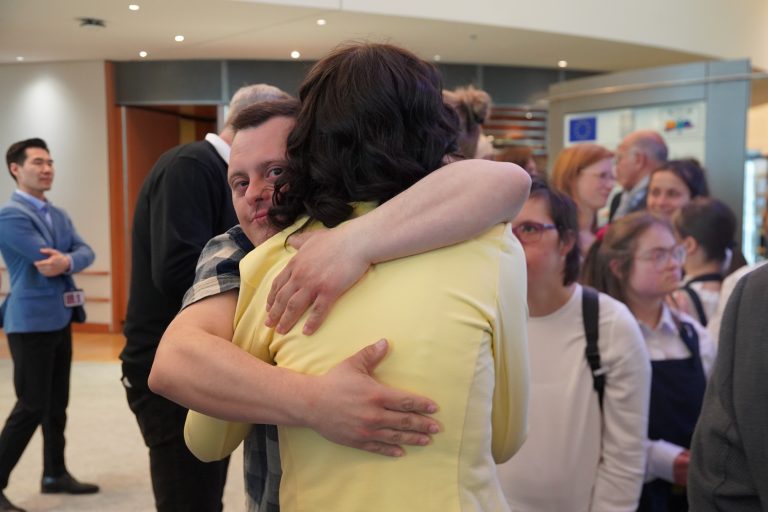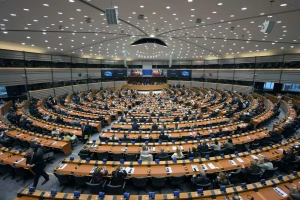Assisted Suicide: Status in the UK
“People are not aware of the implications and dangers that legalizing assisted suicides poses, especially for vulnerable groups including the elderly, sick, and persons with disabilities.” – Mislav Barišić, WYA Director of Policy & Research
As of April 10, 2025, there is currently an assisted suicide bill in the UK at the House of Commons, which would normalize a culture of permitting vulnerable populations to end their own lives. The Bill (formally named the Terminally Ill Adults ‘End of Life’ Bill) is proposed as an article of legislation to “allow adults who are terminally ill, subject to safeguards and protections, to request and be provided with assistance to end their own life; and for connected purposes.”
At this time, the Bill has not reached the House of Lords (after which, it would move to the final stages to be implemented). However, significant political rallying has led to a large amount of support throughout the nation. The Campaign for Dignity in Dying and sisterhood organization, Compassion in Dying, have significant influence and have large amounts of money to make their impact known. “The stakes are higher than ever that this very dangerous Bill has a real chance of getting passed, despite the fact that for years the UK had managed to resist the pressure for such legislative changes” said WYA Director of Policy & Research, Mislav Barišić.
While the language of the Bill’s purpose statement for assisted suicide reads with an altruistic tone, the Bill does little to bring altruism to subsets of the population who need care, kindness, and accompaniment. It has been said that assisted suicide is intended to bring a sense of autonomy to those suffering near the end of their lives, but as WYA’s White Paper on Euthanasia states, “no one loses his or her dignity due to suffering or reliance on others.”
As WYA Director of Policy & Research, Mislav Barišić, said, “[t]his concerning legislative trend is coming to all of our countries, if it is not present already.” Promoting self-administered lethal drugs for the elderly and socially vulnerable is a far cry from promoting their human dignity. To underscore this, the Bill itself mentions the word “dignity” zero times, but the word “death” is included twenty-nine times. This is not a defense of human dignity—this is an offense.
The Legislation: What is Written
Although the Bill acknowledges that the Secretary of State must “make provisions” for qualifying persons (of which persons with mental disorders are included) to have “independent advocates,” it simultaneously lists a variety of mere possibilities—not requirements—for doing so (see Chapter 20). So long as the Code of Practice (see Chapter 36, part 1, section 2) provides for an assessment which recognizes and takes account of the “effects of depression or other mental disorders…that may impair a person’s decision-making,” an individual will still be permitted to choose assisted suicide. This is to say that an independent advocate simply needs to acknowledge that depression is a factor in a person’s decision making, but that this factor need not be the barrier to the patient’s choice to end their life. Imagine that this “independent advocate” is the person you have reached on the other end of the suicide hotline. This is not a safeguard for those struggling or vulnerable; this is a legal protection for the advocate.
In this way, Member of Parliament and British Labour politician, Kim Leadbeater’s Terminally Ill End of Life Bill is notably without recommendation to heal or relieve pain for such individuals, offering only assisted suicide to the vulnerable, disabled or sick—populations already keenly aware of the ways in which they feel a burden on loved ones and society. Instead of offering comfort, accompaniment or support, the Bill practically makes it their duty to die. It puts thoughts in their minds such as, what kind of stubborn, depressive person would insist on sticking around anyway, when waitlists, hospital beds, and healthcare costs are skyrocketing?
Despite the political trend of assisted suicide policy popping up around the world, the World Medical Association (WMA) is firmly opposed to euthanasia and physician-assisted suicide. It has reiterated its strong commitment to the principles of medical ethics and that the utmost respect is to be maintained for human life (see Declaration on Euthanasia and Physician Assisted Suicide) Founded in 1947, the organization was created to “work for the highest possible standards of ethical behaviour and care by physicians” following the medical atrocities and experimentation committed by the Nazis during World War II. Let us not forget the German “Sonderbehandlung” (which translates as “special treatment”) that was the euphemistic language offered to kill the mentally ill and disabled. The veiling of language and linguistic substitutions has always been employed in the attempt to dissociate from others and our own moral responsibility.
This Bill, and its implication for all of society, is troubling. The World Youth Alliance will continue to monitor the status of assisted suicide policies throughout the world and continue to affirm the dignity and value of all human life, regardless of condition or circumstance.
Check out the WYA Euthanasia White Paper for more information here.




